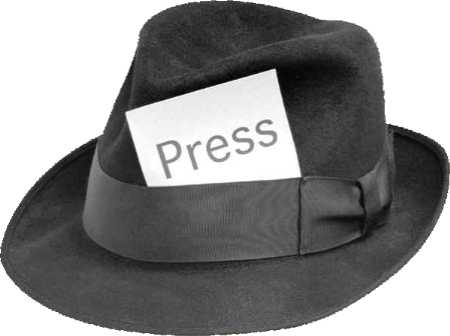Episodes: "He told me"

When I moved to Vox, I was excited to get back into something I hadn't done for quite a while but wanted to do again: forthright reporting. I had been so bogged down in weekly episode reviews and other critical stuff at AV Club that I hadn't had as much of a chance as I wanted to just go out and talk to people and figure out what they thought about things.
But when I first started there, I paused slightly at an affectation that Vox is far from the only site to use: after a quote the reporter gathered is written, "the interview subject told me."
At first, I resisted this. In the days I worked at newspapers, you never had to say, "so and so told me," because the assumption was that, of course they told you. You're the one going out and doing the reporting. It felt like a clumsy way to get around "said," which is a much better verb for these sorts of things.
But I quickly was disabused of that notion. I never spoke about this with any of the people I worked with, but in my own head, "told me" quickly became a kind of shorthand for saying, "This story contains actual reporting," something that internet news has, in the past, traditionally lacked.
That's changing. Lots and lots of sites out there, across the political and subject matter spectrum, are doing more and more reported pieces, and they're putting more and more resources into them. But there's still the reputation internet news bears that this is all copied from somebody else's handiwork, that one of the consequences of the "free" internet is that everybody is welching off of the hard work of other sources, usually print media sources.
And to be sure, that was true for a while. The earliest news blogs were usually the headlines of the day, with excerpts of articles from other sources, then analysis and opinions from the blogger. Sometimes, there would be some original data, or the blogger would draw a connection between a bunch of other different sources to come to a new conclusion. This, to be sure, is a kind of reporting, but it doesn't have the reputation of shoe leather reporting, or calling up a source on the phone to see what they have to say.
For better or worse, the public has the very romantic notion of reporting being the guy in the hat with the press card in it, leaning in on another guy he knows down at the police station, who finally admits, off the record, that the mayor was in on it all along. And to be sure, it's sometimes still this. But a lot of the time, it's just showing up to a press event, or setting up a time, or talking with someone and getting them to give you that perfect quote. And we give the benefit of the doubt in that regard to the print media in a way that we don't online media. At least not yet.
So for now, we have "told me," which is inelegant and disrupts the flow by calling attention to the writer (something that you rarely need in straightforward reporting), but at least indicates that, yes, this writer has done their bona fides and checked with sources and gotten the story. It assures readers at home that this isn't some sort of intuitive leap (even though all great reporting is a series of heavily researched intuitive leaps). It's kind of messy, and it drives me a little bit up the wall every time I type it — or see it in someone else's story — but it feels like a vestigial organ we won't be rid of, at least for a little while.
--
Episodes is published at least three times per week, and more if I feel like it. It is mostly about television, except when it's not. Suggest topics for future installments via email or on Twitter. Read more of my work at Vox Dot Com.




